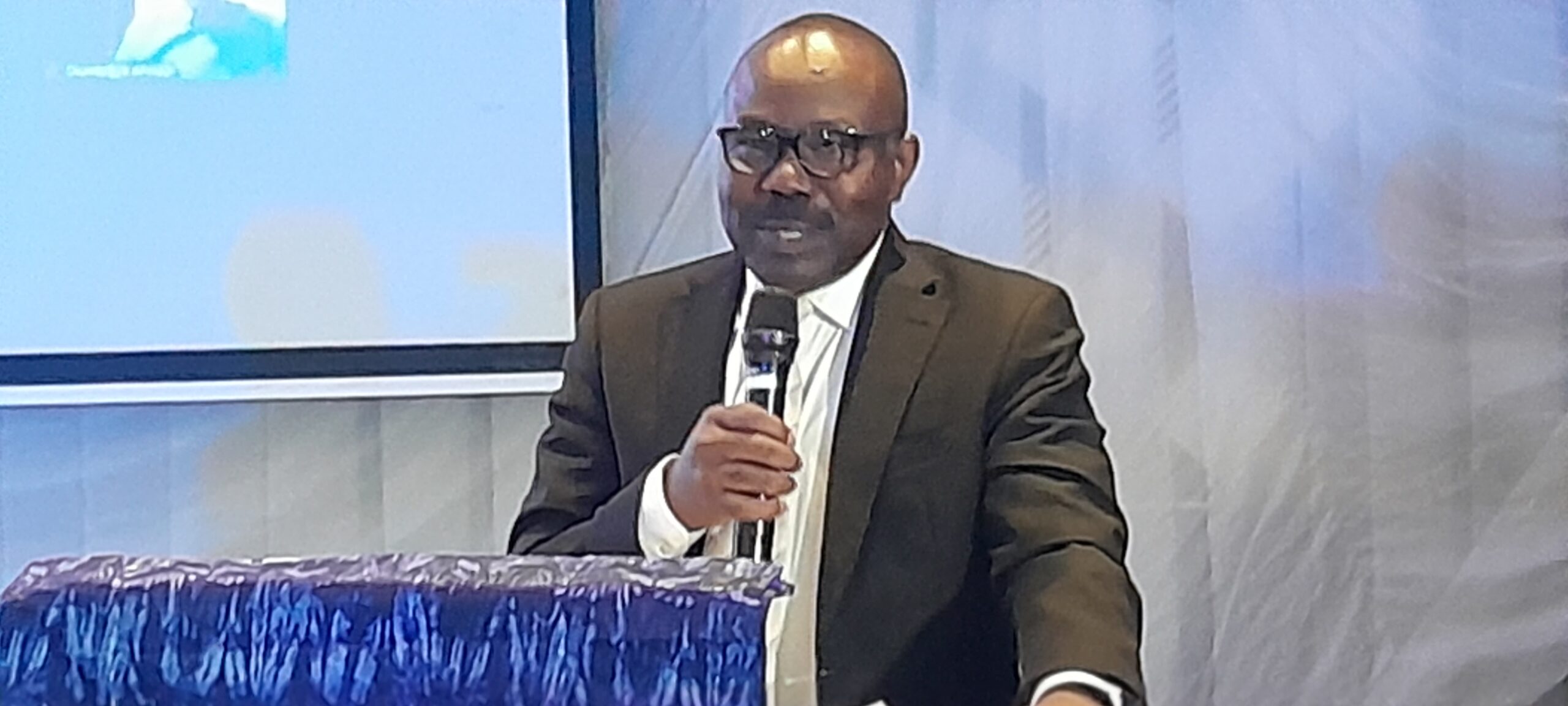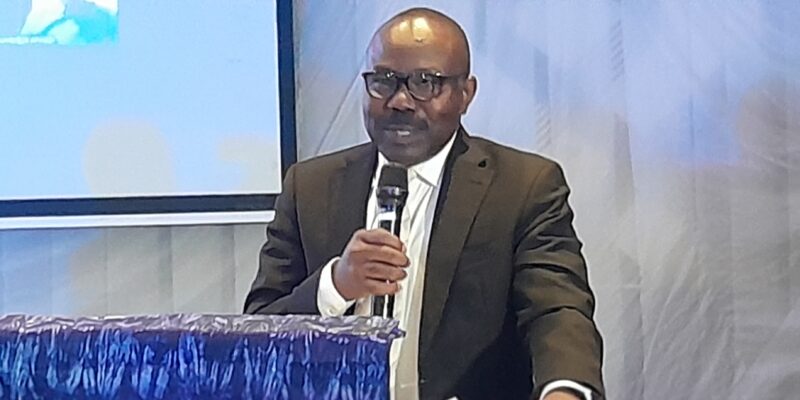
About two weeks ago, the National Drug Law Enforcement Agency (NDLEA) invited me to be the speaker at the Agency’s weekly Twitter space engagement. My preliminary reaction to the invitation was to query my qualification and competence to speak on that topic. This is borne out of the fact that I was never an employee or appointee in the Agency at any point in time.
The closest relationship I have ever had with the Agency was in respect of the conversation around the general abuse of substances in a seminar organized by the United Action for Change, a non-governmental pressure group convened sometime about eight years ago by my humble self. Beyond this engagement, no relationship exists between myself and the Agency, and as such, might not know the ailments or challenges of the Agency, much less the prognosis.
Consequent to the above, my natural inclination was to decline the invitation, but on second thought, I felt that, as a follower of the activities of the Agency in recent times and as a trainer of a sister intelligence Agency for a couple of years, I might be able to offer some suggestions towards strengthening the Agency. Hence, my summersault to accept the invitation. As expected, the presentation could not be made without first acknowledging and appreciating the remarkable and outstanding achievements of the Agency since the appointment of General Buba Marwa as the helmsman of the Agency. In a discourse of this nature, I am unable to detail the accomplishments of the Agency within the short space of time of Marwa’s leadership but suffice to sum it up that the Agency now lives as demonstrated in a previous edition of this column a while ago wherein I captured some of the miracles being performed by the new NDLEA. See Renewed drug war: The Marwa factor published on 27th May 2021 https://www.sunnewsonline.com/renewed-drug-war-the-marwa-factor ) I, therefore, will not dwell on that again. You may, therefore, want to describe the Agency now as the Living NDLEA.
Without a doubt, this success story is the verdict of all the progressive Nigerians who are abreast of the activities of the Agency. Notwithstanding the unprecedented achievements of the Agency so far, I believe that there is still room for improvements if given the necessary impetus by way of further support. This was the crux of my engagement during the session and this shall constitute the gravamen of my discourse herein. By way of preface, the functions of the Agency transcend the enforcement of the drug and substance abuse legislation into the prevention of the proliferation and abuse of substances, inclusive of education and enlightenment of the populace.
This involves taking preemptive strikes where necessary, blockages of distribution channels, rehabilitation and reformation of victims of substance abuse, counselling, etc. To gain further traction in respect of those functions by way of strengthening the Agency, the foremost area is the personnel. The number of personnel of the Agency is not that great as to be able to attain its objectives easily. I believe the human capacity needs to be enhanced, particularly at the grassroots levels where the Agency carries out massive engagements, particularly in terms of education and enlightenment. A lot of Nigerians, especially at the grassroots level, abuse substances out of ignorance. The campaign, at this level, ought, therefore, to assume a semblance of what is obtainable at the political class.
It is when the majority of the people are sold into the crusade, and they take ownership of the process, that enforcement will be impactful. Their consciousness must be raised to the level that they are able to see something and say something.
As routinely recounted by the Transport for London message on the tubes, the people must be able to communicate any noticeable infraction of the drug and other substance legislation when they see them, in order for the Agency to sort them out. Adjunct to this need is the requirement for more men to gather intelligence for the Agency. All over the world, intelligence stands out agencies of this nature, which does not only require more men but more logistics. Intelligence gathering is a prodigal venture, so to say. Beyond the officers that will cover intelligence bits, the engagement of special agents is a vital component of strengthening the Agency. These are not direct employees but agents paid on particular contracts to reinforce the operations of the Agency. It is needless to state that all these personnel require appropriate kitting. Due to the nature of the tasks executed by men and officers of the Agency, there is a crucial need to appropriately weaponise or arm them.
Most of the weapons used by them are obsolete and upgrade is inevitable towards efficiency. It is a notorious fact that they daily confront deadly men who possess all the means to acquire the best of arms. Attestation to this danger faced by officers of the Agency was buttressed by the recent revelation of the Chairman that his men are being maimed and killed in recent times. To motivate and further protect these men, it is important that they are not only provided special insurance cover for their lives and families but also their properties. In addition, the present state of their welfare is unenviable.
Though the current leadership would appear to have done something about welfare, it is still a far cry from what is desirable to forestall any temptation. While I recognize the fact that the Agency is not empowered to fix the remuneration of its staff, I believe a case can be made for a datum-line fund that will enable the Agency to cater well for the welfare of its staff.
I also believe, as I shall dwell on later, that the Agency deserves autonomy and its emoluments should not only be placed on first-line charge from the Consolidated Revenue account of the Federation but the Agency must be given latitude, through its Board, to fix the remuneration of its staff. What distinguishes Agencies like the Central Bank, Nigerian Deposit Insurance Corporation, Assets Management Corporation of Nigeria and others from the Agency? The risks and temptation involved in their engagements are much higher than those of the said other Agencies. Can we, therefore, stop paying them pittance? I believe autonomy will further strengthen the Agency to the extent that Marwa need not exist there in perpetuity to reap the type of benefits we are witnessing now.
To motivate them, the welfare package must be satisfactory enough to give contentment to the officers. The need for continuous capacity development cannot equally be underscored. Daily, the barons and drug dealers develop new tricks, tactics and styles, to carry out their nefarious trade and the men need, not only to be abreast of this but must be ahead. This training demand is to be tied to the acquisition of modern drug-fighting tools in terms of technology. The Agency cannot afford to continue with the outdated manual ways of fighting the battle. Again, I believe that the facilities of the Agency need to be enhanced, particularly the need for barracks to house and protect its officers cannot be underestimated. Reception, reformational and correctional facilities need to be expanded. As of date, over fourteen million Nigerians are involved in substance abuse with over sixty million having mental ailments. This requires huge and multiple facilities to deal with. Of vital importance also is the need to modernize the legal framework of the Agency. Most of the extant provisions are obsolete. I do not also believe that plea bargaining must be applicable to the barons and dealers of prohibited substances.
This will strengthen the enforcement capability of the Agency by way of deterrence. In this proposed reformed law, I expect provisions that will not only insulate the Agency against political interference but grant autonomy to the Agency in all ramifications. The challenge I envisage here is in the quality of the legislators in the country. Apart from the ignorance of a substantial number of them, particularly in terms of the drug war, they are at times, wittingly or unwittingly, products of sponsorship by barons in one form or the other. While some may not have nexus with drug dealings, sponsorship of their campaigns is at times tainted with the proceeds of drugs. In this scenario, the necessary legislative support might be difficult to garner.
Therefore, should we be desirable of a substantially free-drug society, we need to pay attention to those to be elected in the forthcoming elections. Their pedigree must matter to us. It is only when we are able to elect drug-unfriendly legislators that the desirable legislative reform can sail through.
While it is also desirable to have inter-agency collaborations, such must be embraced with caution as some of the Agencies might be a bad influence. In this regard, I will further advocate the independence of the Agency in terms of prosecution. This might require a constitutional amendment to exempt the power of the Attorney General over the Agency in terms of prosecution, so as to shield the Agency from political interference.
The summary of all that has been said above is that the Agency requires substantial funding leaps in order to enhance its operations and attain its objectives. Again, recall that the Legislators are appropriate and if they are complicit in substance abuse, then there is a further challenge that can only be eliminated through our purposeful election of credible legislators. The need for autonomy and funding must therefore be made an issue by all of us so as to attract the right attention and gain the desired traction. It might not also be out of place for concerned Nigerians to put heads together to draft and sponsor the needed bill. Marwa will not be there forever and we do not want to revert to the lethargic position experienced before. Nigerians must act urgently.

Comments